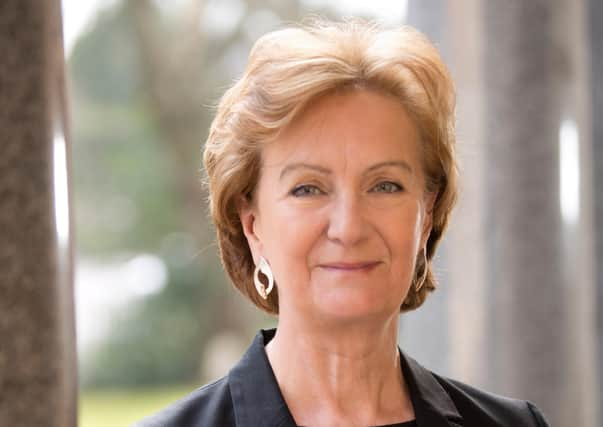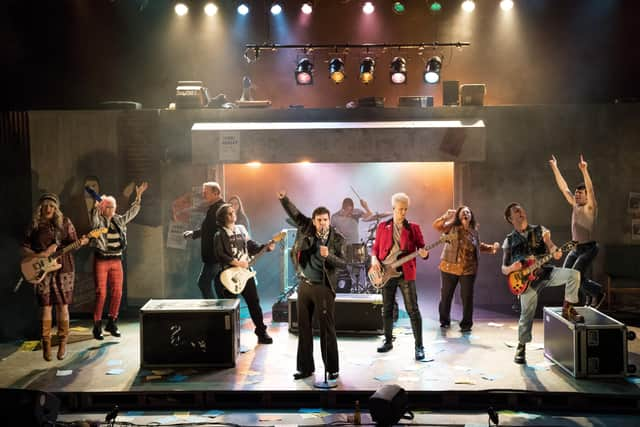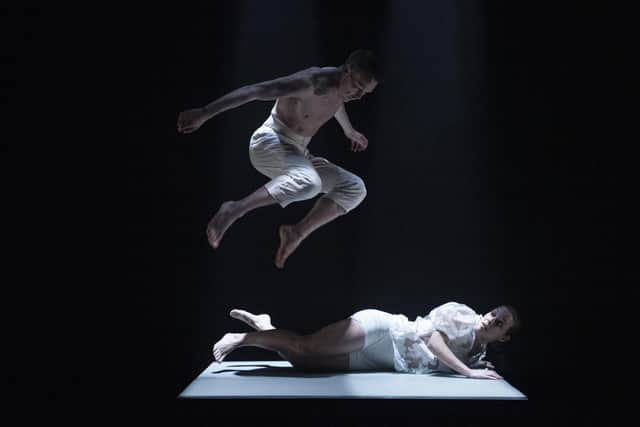Survival and sustenance; the challenge for the Arts


“Artists and arts organisations rapidly found new ways to engage with audiences online. They provided a tonic to lockdown and allowed us to enjoy brand new digital content that has entertained people, enriched our lives and lifted our spirits. People have had the opportunity to enjoy everything from learning circus skills with Streetwise Theatre and song writing with Gary Lightbody, to the specially-commissioned ‘Splendid Isolation – Lockdown Drama’ short original plays commissioned by the Lyric Theatre and broadcast across the BBC. Never have the arts been more needed and more appreciated by so many.
“But behind the digital curtain, COVID-19 has decimated the arts and survival has become the over-riding priority. Social distancing has put an end to participation in live music events, arts venues, theatres and festivals as we knew them. Freelance artists contracted to deliver services either directly or indirectly to commissioning organisations have had their contracts cancelled, and the many creative, skilled technicians employed in the arts economy are without work.
Advertisement
Hide AdAdvertisement
Hide Ad“Early in the pandemic, the Department for Communities and the Arts Council put together an entirely repurposed package of emergency funding for the sector announced by the Minister as a Creative Support Fund totalling £5.5 million. All of that support will be released to the wider arts and creative sectors for both individual practitioners and organisations, but much more is needed if the sector is to survive relatively intact.


“The Arts Council, as the lead development body for the arts in Northern Ireland, has conducted extensive surveys since COVID-19 began. We have a clear picture of the state of the sector, the majority of which is not-for-profit and already under stress from years of under investment. The pandemic has brought it to its knees.
“Actual losses to the arts stand at £11.6 million for the last six months alone. This figure is likely to reach at least £23 million by the end of the year. To compound matters further, many arts organisations which rely heavily on income generated through box office are facing a socially distanced Christmas season ahead, normally one of the most profitable times of year for the arts.
“By retaining this fragile sector, we are investing in jobs and vital organisations which contribute to the cultural tourism offering in Northern Ireland, the night time economy and the culture, health and well-being of our citizens. Investment of additional resources must be found in ensuing financial years to meet ongoing need and keep those organisations, artists and skilled support staff – the lighting technicians, sound engineers, set-builders, and so forth – employed and ready to continue their essential work within the arts, so that we can continue to grow the creative sector here.
Advertisement
Hide AdAdvertisement
Hide Ad“Audience confidence has been severely affected by COVID-19. Lockdown and social distancing has made it impossible for them to engage with the arts in a live setting. Innovative programming is needed from spring 2020 to encourage a safe return to the live arts and to rebuild the confidence of audiences.


“The creation of digital arts content by our artists has become a necessary means of engagement for audiences during this pandemic and has been widely praised. Many report that the pandemic’s flourishing of online and digital work exposed greater numbers of the public to the arts, who had otherwise felt excluded or that the arts were ‘not for them’.
“We need to be able to invest in the development of digital skills and capacity now and in the future - not competing with live performance, but complementing the points of access to great art. Fresh innovative thinking is already emerging about how outdoor performances can be safely programmed for audiences, while the Arts Council has produced specific guidance to the arts sector on how they can reopen venues and start making work again in a safe manner in line with the public funding needed.
“It is unimaginable to contemplate our community in Northern Ireland without the many non-venue-based organisations working deep in communities both urban and rural; those delivering arts to the most marginalised by health challenges, poverty and social isolation; the art galleries with international reach like VOID and Golden Thread; the venues like the Grand Opera House, the Playhouse, the Millennium Forum, the Lyric; the range of festivals we enjoy; the vast resource of traditional arts and music - all dependent on the wider arts ecosystem to thrive. The means to ensure the survival and future sustenance of our arts and culture sectors has never been more critically needed than now.
Advertisement
Hide AdAdvertisement
Hide Ad“The Arts Council continues to make the case to our partners in government for parity of esteem in terms of public investment in arts across these islands. We want to close the current, wide gap on funding for the arts and ensure that the public spend per head of population equates fairly to those living in England, Scotland, Wales and the Republic of Ireland; essential to keeping our arts alive and valued.”